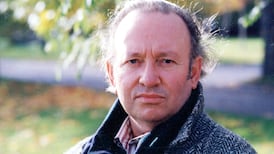“The silence in the courtroom as I walk through the door is the loudest noise I’ve ever heard.” In 2024 an interview on Nicola Tallant’s Crime World podcast stopped me cold. After a night out in Galway, 21-year-old Bláthnaid Raleigh went to a house party with a group of young people she knew from her hometown, Mullingar. Details of what ensued have haunted me since, including rape and aggravated sexual assault with a bottle.
These are the chilling crimes Johnny Moran was charged with. Five years later, Moran was found guilty and sentenced to eight years in prison. Raleigh waived her right to anonymity so that Moran could be named.
PTSD, internal physical scarring, incessant fear, powerlessness, loss of relationships, of self, a life drained of colour. With the help of Niall Kelly, Raleigh details the ugly trauma and isolation that devastated her life in the years after the incident. “I lose every part of myself,” she writes in a rare statement with which I find any contention. Raleigh did not lose anything; it was stolen from her.
While Raleigh demonstrates formidable courage, conviction and insight, she aptly states: “I don’t want to be strong and I have never wanted to be, but that choice was taken away from me when someone else decided to take control of my body”.
READ MORE
Raleigh is aware that many victims of sexual assault “never get their stories this far”, and advocates passionately on their behalf. Among many notable aspects of this story is how weak bystanders, compassionate strangers, dedicated professionals and under-resourced public systems can serve to further empower or victimise. Raleigh criticises the supposedly “victim-centred” judicial process, and the shameful practice whereby the counselling notes of victims of sexual assault could be requested for use in trial.
With echoes of Louise O’Neill’s fictional novel, Asking For It, Raleigh highlights how status impacts perception of both victims and perpetrators of sexual assault. While Raleigh’s life is eroded to a husk, Moran continues in his role as “King of Mullingar” until he is imprisoned 1,807 days after the assault.
[ Louise O’Neill on writing Asking For It: Unblurring the lines about rapeOpens in new window ]
Although Raleigh wishes she could conclude with an uplifting ending of recovery and justice served, she unfortunately cannot. Nor should she have to. The burden to uplift the reader does not belong to her. However, after years of self-loathing she tells us that: “I am handing over that shame and guilt and disgust”. Rightly so. Shame, guilt, disgust. Those feelings belong to rapist Johnny Moran.










